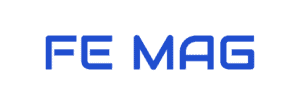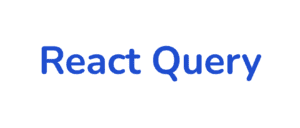Selecting the appropriate tools and libraries for a front-end web development project guarantees that your application operates smoothly, can be easily managed, and offers an optimal user experience. When you need to manipulate data in a React app, two popular options are React Query vs RTK Query (short for Redux Toolkit Query).
React Query is efficient for managing and simplifying data fetching in React applications. It’s a lightweight library that offers several essential features, such as automatic caching, deduplication of network requests, the ability to handle error states and retries effectively, and pagination support with optimistic updates. With React Query, you can easily access and modify the data you need.
RTK Query, offers data fetching and caching capabilities based on the Redux state management library. It has many similar features as React Query but is compatible with other components from the Redux Toolkit, such as middleware or reducer creation. With all these advantages combined into one comprehensive toolset, you have everything you want to manage your application’s data.
This post will compare and contrast React Query and RTK Query to understand their similarities and differences thoroughly. Additionally, we’ll explore potential use cases for each library, providing insight into when it’s most beneficial to choose one over the other. By the end of our journey, you should understand both libraries’ pros and cons, allowing you to select confidently what works best for your project.
Key Features of React Query and RTK Query
React Query is a user-friendly, independent library designed to make data fetching in React applications easier. It was created by Tanner Linsley and maintained by an open-source community of contributors.
Some key features of React Query include:
- Automatic caching: React Query accelerates data retrieval and optimizes network requests by utilizing an automated caching system.
- Deduplication of network requests: React Query guarantees that multiple requests for the same data will not be sent concurrently, allowing you to improve performance and decrease your network traffic.
- Support for error states and retries: React Query provides tools for handling errors, allowing you to create robust and reliable data-fetching logic.
- Pagination support with optimistic updates: React Query makes it simple to implement pagination in React applications.
RTK Query, an innovative library developed by the Redux team as part of their Redux Toolkit package, offers data fetching and caching functionality based on the powerful Redux state management.
Some key features of RTK Query include:
- Comprehensive data management solution: RTK Query offers a complete solution for managing data in React apps, with features that enable users to quickly retrieve data from external APIs, store it locally, and handle retries.
- Integration with other Redux Toolkit features: For developers already leveraging Redux in their projects, RTK Query is a particularly desirable choice due to its perfect integration with the other features of the Redux Toolkit, like reducer and middleware creation.
- Support for optimistic updates and pagination: Like React Query, RTK Query also supports progressive updates and pagination handling for your React application.
Similarities between React Query and RTK Query
React Query and RTK Query offer similar benefits that make them both ideal solutions for controlling data in React applications.
Good Performance
A major common factor between the two libraries is their emphasis on optimal performance. Both include automatic caching to reduce the number of network requests and improve data retrieval efficiency, as well as support for network request deduplication, which prevents multiple requests for the same data from being sent simultaneously.
Ease of Use
React Query and RTK Query share one more trait: they are both straightforward. Both have intuitive APIs, allowing them to integrate easily into React applications. They also provide features such as automatic refetching or pagination support that simplify the fetching and displaying of data.
Various Options
React Query and RTK Query provide a comprehensive data management solution in React applications. From fetching data from external APIs, storing it locally, or even handling retries, these tools offer features that enable you to manage your app’s data effectively. Furthermore, they allow you to implement optimistic updates and pagination seamlessly.
All in all, React Query and RTK Query have plenty of similarities. Consequently, either could be an efficient answer for managing data within your React application.
Differences between React Query vs RTK Query
React Query and RTK Query have many similar features, yet there are also crucial differences that you must consider when choosing between the two libraries for your project.
Architecture
React Query stands alone and is not dependent on any particular state management solution, whereas RTK Query is explicitly built upon the Redux library. It means that RTK Query works in sync with other features of Redux Toolkit, such as middleware creation and reducer generation; it’s also entirely compatible with the rest of the toolkit library.
Approach
React Query adopts a straightforward, declarative API and relies on React’s rendering cycle to control data. In comparison, RTK Query is best suited for developers with prior knowledge of Redux due to its reliance on reducers and actions. However, this entails greater complexity when introducing newcomers to the system.
These differences in architecture and approach to data management can impact a developer’s decision to use one library over the other. For instance, if an application already uses Redux and wants to leverage the additional features offered by Redux Toolkit, then RTK Query could be a great option. Otherwise, React Query may be preferable for those searching for a lightweight, standalone solution for their project’s data handling requirements.
Pros and Cons of React Query and RTK Query
Weighing the advantages and disadvantages of React Query against RTK Query is essential when deciding which library will best manage your data in a React application. Let’s explore their respective pros and cons:
Pros of React Query
- Lightweight and easy to use: React Query is very simple to learn and use with its highly-declarative API. Furthermore, you can easily add it to your project because it operates as a standalone library without needing extra dependencies.
- High performance: React Query allows for fast data retrieval with features such as automatic caching and network request deduplication, which enhances your site’s performance.
- Flexible: With React Query, you are not bound to any particular state management solution like Redux, meaning it can be utilized in a wide range of circumstances and is unrestricted by libraries or architectures.
Cons of React Query
- Requires a separate state management solution: React Query is designed to handle server state; it is not a client state management solution like Redux. When using React Query, you properly want to use React Context or a lightweight state management library like Zustand to handle client state.
- Limited support for complex data management scenarios: React Query handles basic data management tasks competently, but if you’re looking for more robust features and capabilities, it may provide a different level of support.
Pros of RTK Query
- Integrates seamlessly with other Redux Toolkit features: RTK Query was built on top of the Redux state management library, making it easy to integrate with other Redux Toolkit functionalities such as middleware and reducer generation. It allows for a smooth interaction across your application architecture.
- Familiar to developers who already use Redux: For developers already acquainted with Redux, learning and using RTK Query should be a breeze as it is based on the same architecture and pattern.
- Provides additional features beyond data management: RTK Query provides data fetching and caching features and offers other tools that are advantageous when developing a React application.
Cons of RTK Query
- Limited to use with Redux: Unlike other data management solutions, RTK Query can only be used in combination with Redux, thus decreasing its overall adaptability.
- Steep learning curve for developers new to Redux: For developers who are not already familiar with Redux, learning RTK Query may require a steeper learning curve because it requires an understanding of Redux concepts and patterns.
Use Cases for React Query and RTK Query
Here are some use cases where you might choose to use React Query or RTK Query:
Use cases for React Query
- Lightweight, standalone data management solution: If you are looking for a lightweight, standalone solution for data management that does not require any additional dependencies, React Query might be a good choice.
- Simple data management scenarios: If your project has relatively simple data management needs and you are not looking for many additional features beyond data fetching and caching, React Query might be a good fit.
- Projects that do not use Redux: If your project is not using Redux or any other state management solution, React Query might be a good choice because it is separate from any specific state management solution.
Use cases for RTK Query
- Projects that are already using Redux: If your project is already using Redux or the Redux Toolkit and you want to take advantage of the additional features that RTK Query provides, it might be a good choice.
- Projects requiring integration with other Redux Toolkit features: If your project involves using other Redux Toolkit features, RTK Query might be a good choice because it integrates seamlessly with the rest of the Redux Toolkit library.
- Complex data management scenarios: If your project has more complex data management needs and you are looking for a library with a more robust feature set, RTK Query might be a good fit.
Conclusion
React Query and RTK Query are instrumental in data management inside React applications. While they share some commonalities, you must consider several essential distinctions between them to select the suitable tool for your project.
React Query offers developers a lightweight and straightforward library with outstanding performance, yet it may be limited regarding more advanced data management. RTK Query brings the power of Redux state management along for the ride, allowing seamless integration within all aspects of the Redux Toolkit – though this might present a challenge for those who are only beginning their journey with Redux.
If you want to learn more about how React Query performs in comparison to different data management libraries, check out my other posts:
As always, it’s essential to remember that there is no one-size-fits-all solution to data management in a React application. Every project has unique requirements, so what works well for one may be ineffective for another. By taking your time to research different libraries, compare their features, and select which suits you best – you’ll ensure your React application will handle complex data efficiently and provide a great user experience.



